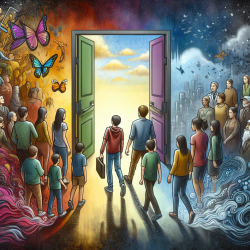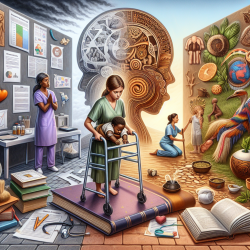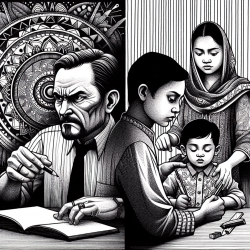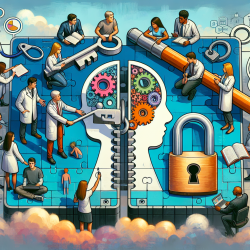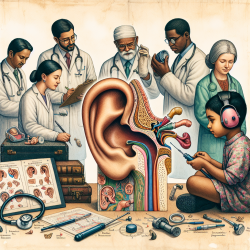Introduction
The transition from pediatric to adult mental health care services presents unique challenges, particularly for youth and young adults (YYA) with intellectual and developmental disabilities (IDD) and co-occurring mental health (MH) conditions. A recent study titled "Barriers to Mental Health Care Transition for Youth and Young Adults with Intellectual and Developmental Disabilities and Co-occurring Mental Health Conditions: Stakeholders’ Perspectives" provides critical insights into these challenges and offers a pathway for practitioners to enhance their skills and improve outcomes for this vulnerable population.
Understanding the Barriers
The study identifies barriers at multiple levels using the social-ecological model (SEM), which includes individual, family, provider, systems of care, and societal levels. Each level presents distinct challenges that can impede the transition process:
- Individual Level: Youth with IDD often lack self-advocacy skills and the knowledge necessary to navigate adult health systems.
- Family Level: Families require support and training to effectively assist their children in transitioning to adult services.
- Provider Level: There is a notable lack of provider knowledge regarding the nuances of IDD and MH conditions, compounded by a shortage of trained mental health providers.
- Systems of Care Level: Access to care is hindered by long wait times and inadequate integration between IDD and MH services.
- Societal Level: Discrimination and stigma against individuals with IDD and MH conditions persist, affecting access to appropriate care.
Implications for Practitioners
Practitioners can play a pivotal role in addressing these barriers by implementing several strategies:
- Enhancing Self-Advocacy: Encourage and educate YYA on self-advocacy, helping them to articulate their needs and preferences in healthcare settings.
- Family Engagement: Provide resources and training for families to navigate adult care systems effectively.
- Provider Training: Engage in continuous professional development to better understand the intersection of IDD and MH conditions, ensuring a holistic approach to care.
- Systems Coordination: Advocate for better integration of services between IDD and MH care systems to streamline access and reduce wait times.
- Addressing Societal Barriers: Work towards reducing stigma and discrimination through community education and advocacy.
Encouraging Further Research
While the study provides a foundational understanding of the barriers to care transition, it also highlights the need for further research. Practitioners are encouraged to contribute to this growing body of knowledge by exploring:
- The effectiveness of specific interventions aimed at improving self-advocacy among YYA with IDD.
- Innovative training programs for families and providers that address the unique needs of this population.
- Policy changes that facilitate better integration of IDD and MH services.
To read the original research paper, please follow this link: Barriers to Mental Health Care Transition for Youth and Young Adults with Intellectual and Developmental Disabilities and Co-occurring Mental Health Conditions: Stakeholders’ Perspectives.
